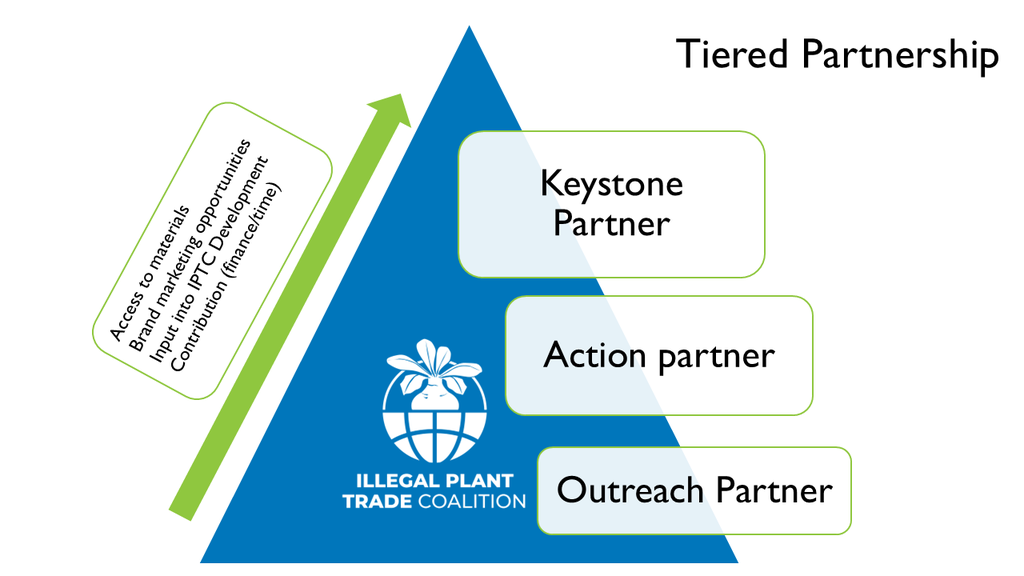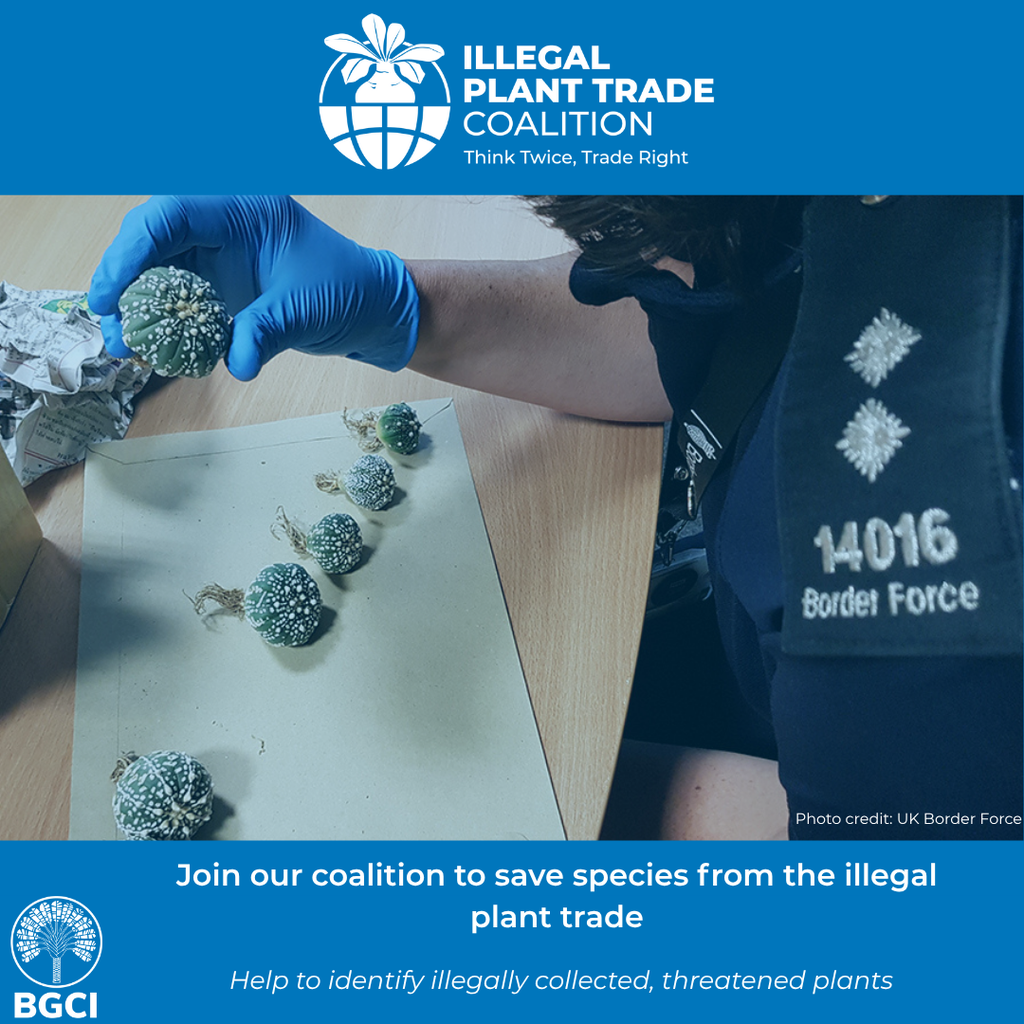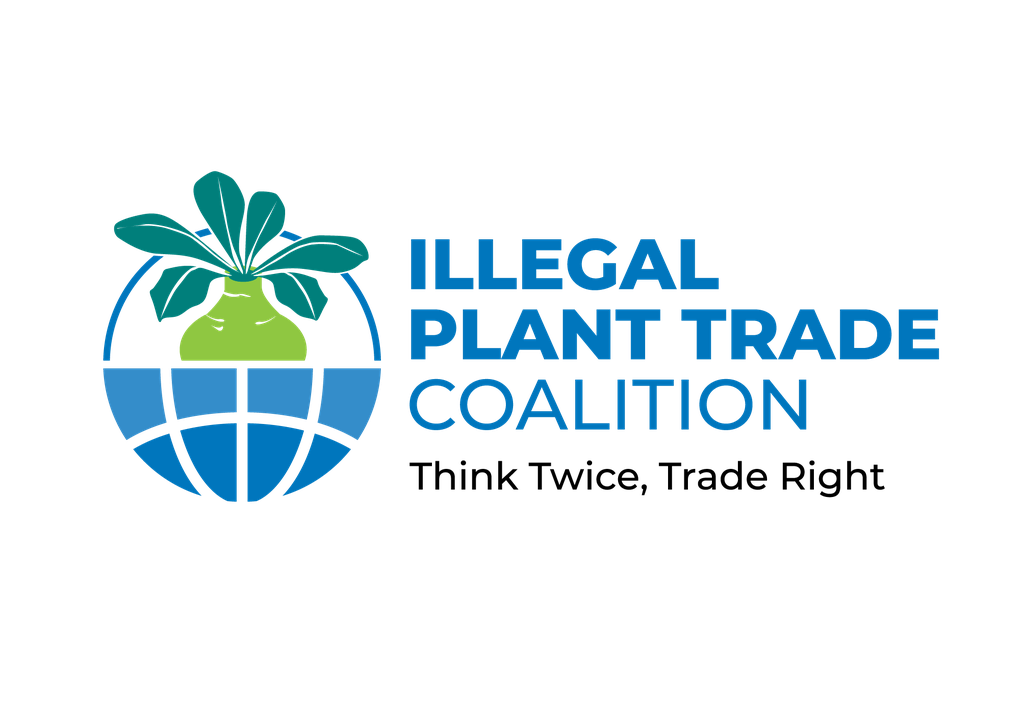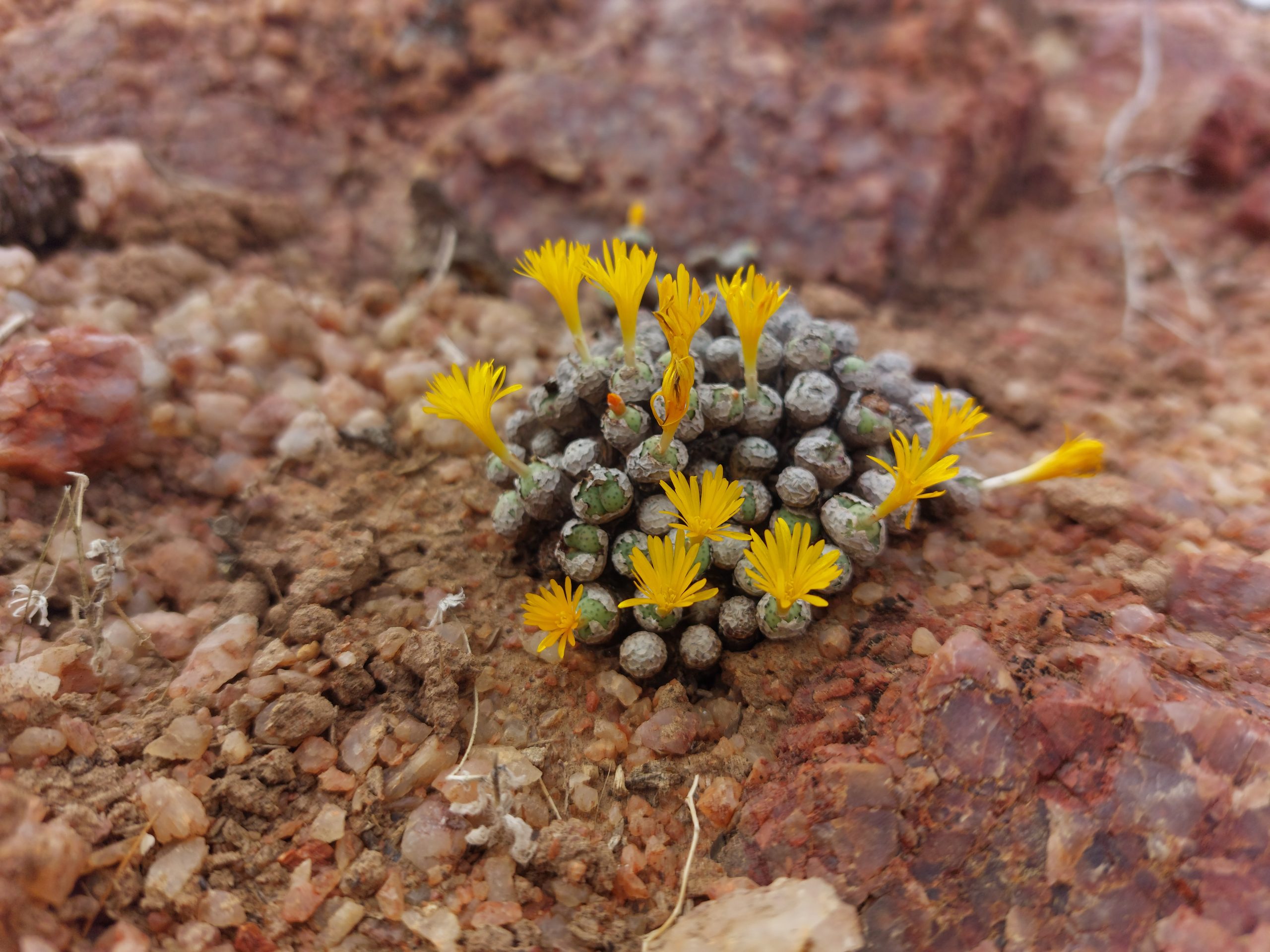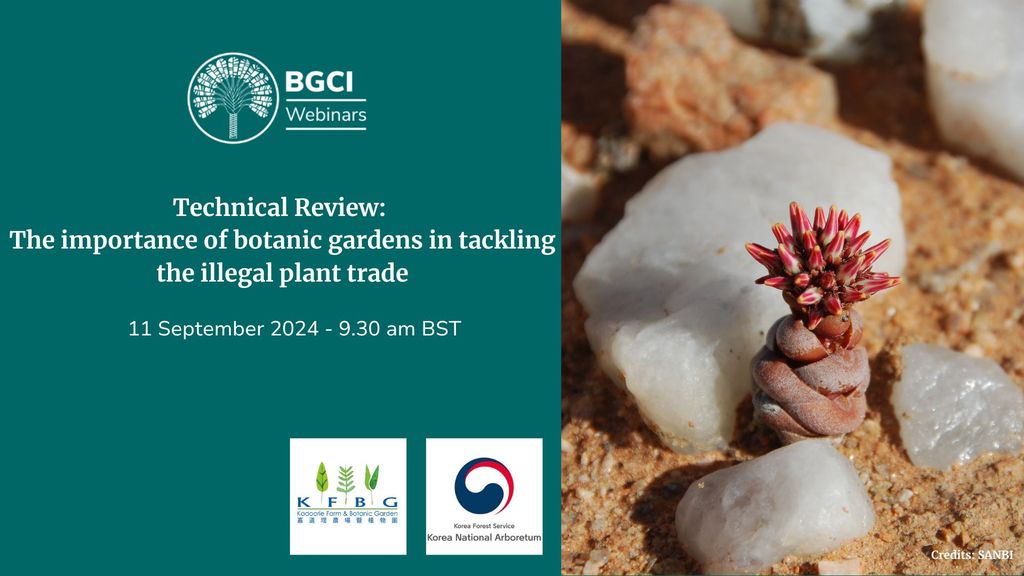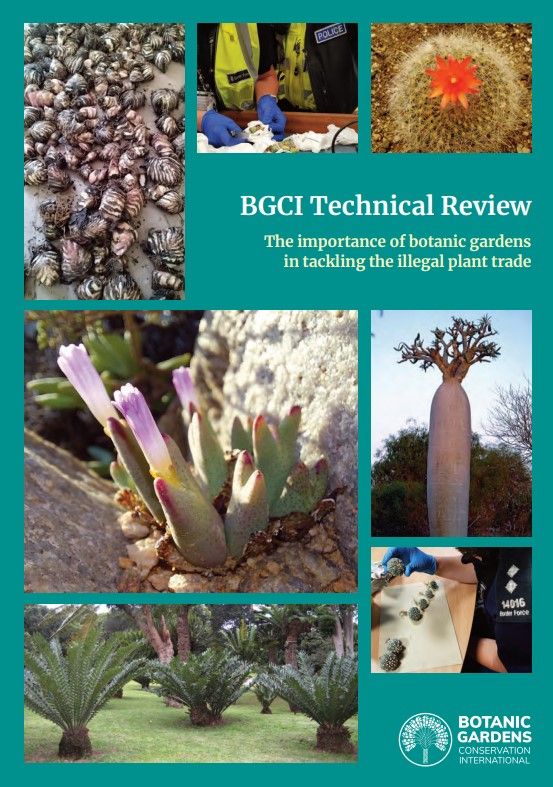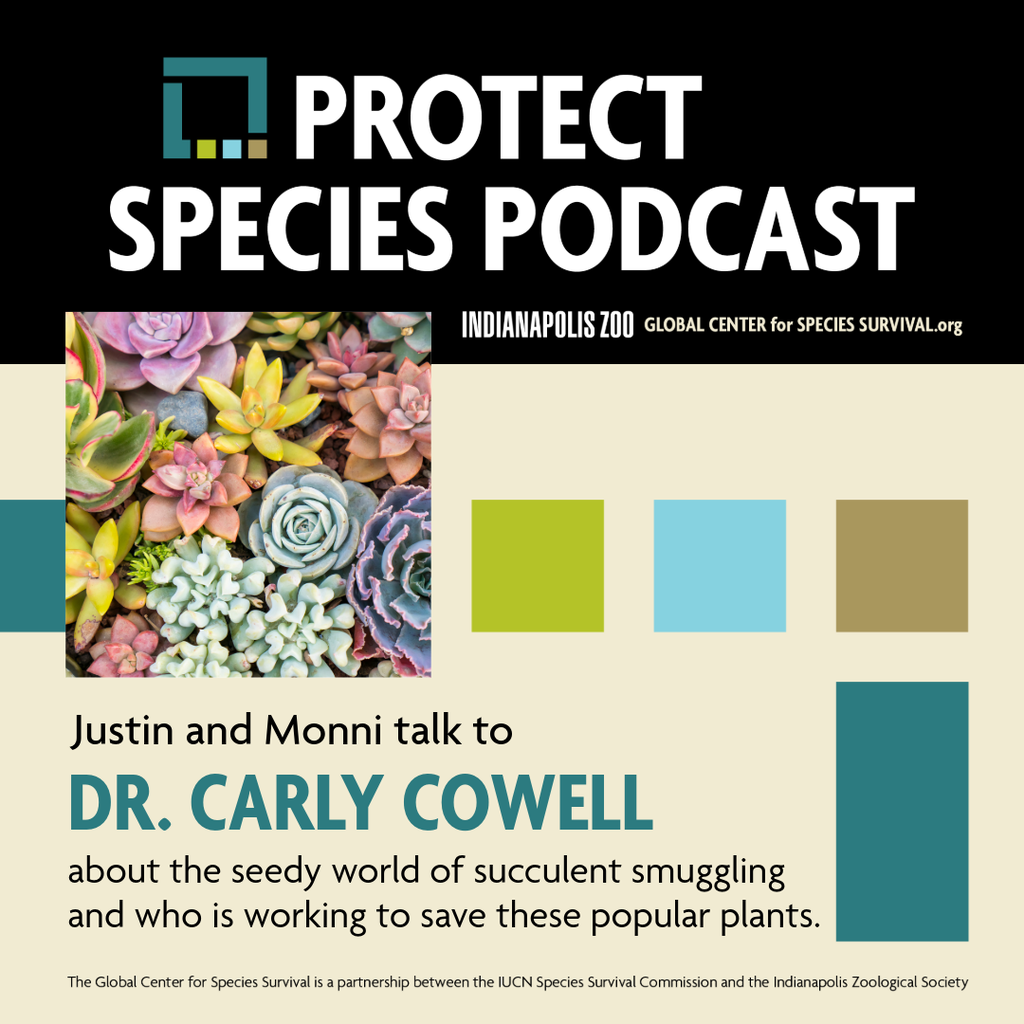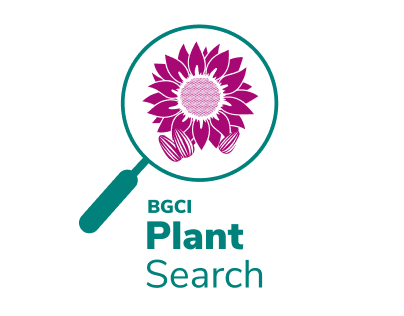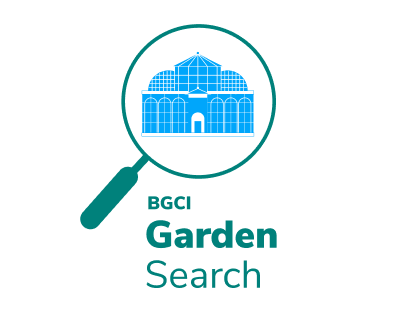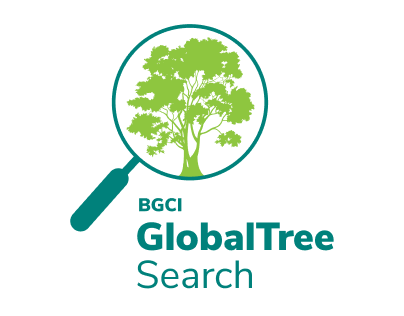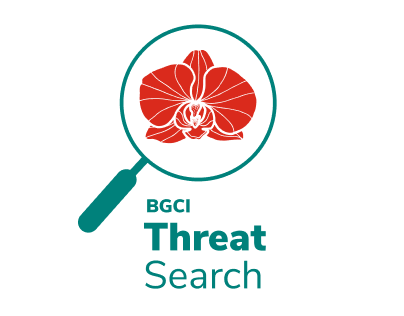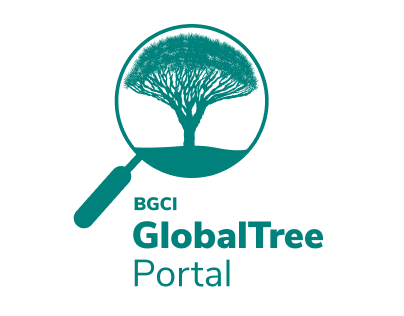Illegal Plant Trade Coalition
The Illegal Plant Trade Coalition (IPTC) is a global alliance of botanic gardens and other partners for combined action to address, understand and mitigate the illegal plant trade.
Click the ‘Get Involved’ button above to find out ways to get involved with The Coalition, and fill out the form at the end of the page to register your interest.
The illegal plant trade is a growing yet often overlooked crisis. Just like the trafficking of ivory or rhino horn, rare and endangered plants—such as succulents, orchids, and cycads—are being poached at alarming rates to meet demand from unaware plant purchasers, collectors who are aware of plant poaching and other ornamental and medicinal markets.
The Coalition encourages everyone in the chain of sale from harvesting to end consumer of plants to Think Twice, Trade Right.
The Coalition aspires to stop species extinction from illegal wildlife trade, by protecting threatened plant species, supporting behavioural change interventions, promoting sustainable alternatives through propagation, verified vendors and sales platforms, and reducing plant poaching and habitat destruction in source countries. For more information, see Background and Resources.
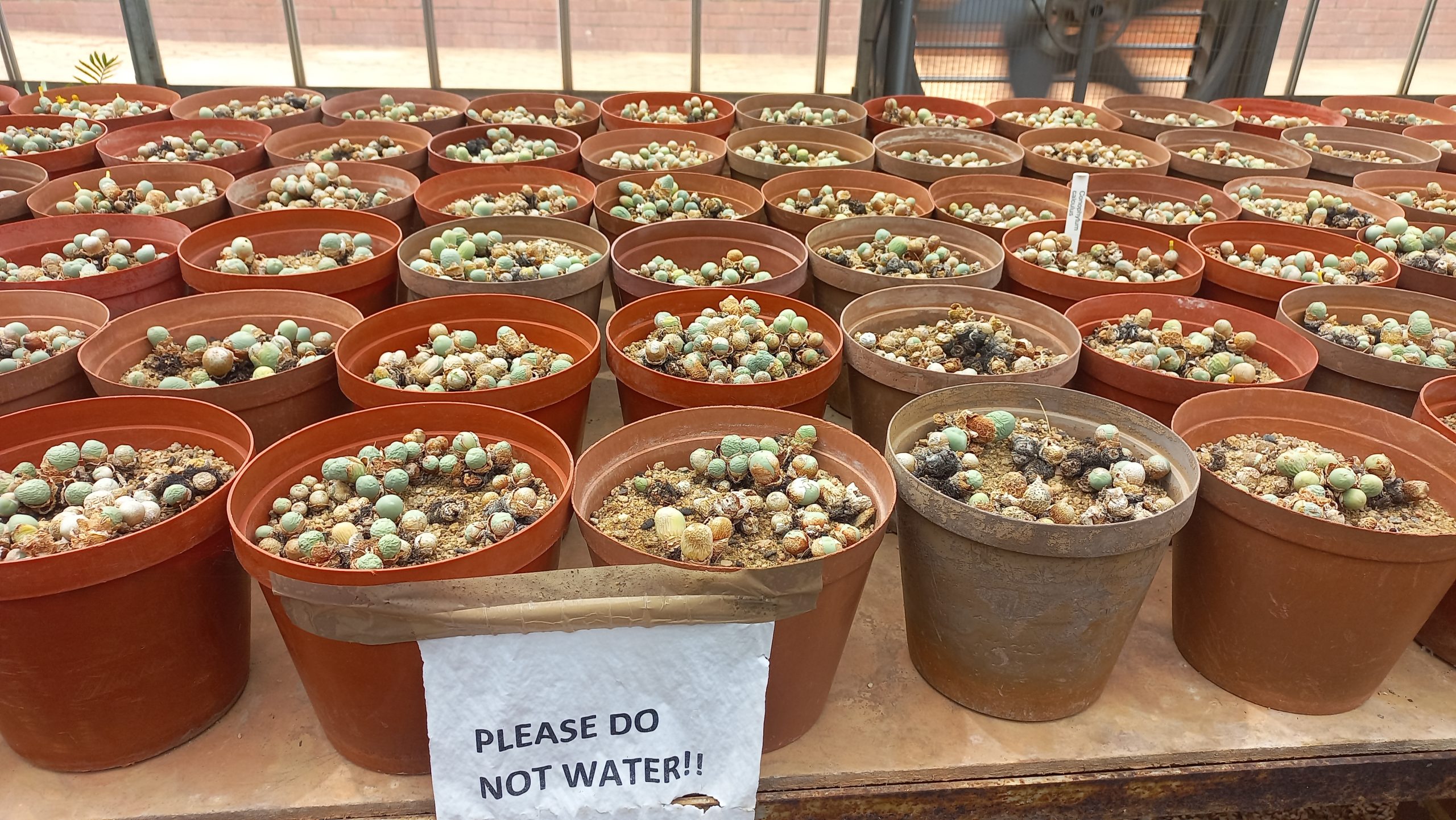
Creating a Global Coalition
BGCI, in partnership with the Commission on Education and Communication of the International Union for the Conservation of Nature (IUCN CEC) has developed a global outreach strategy that will address the illegal plant trade. Whilst BGCI, with its many global partners and technical allies, brings the expertise and on-the-ground experience with working with plants, IUCN’s CEC is providing the process guidelines in designing effective behavioural change interventions.
We aspire to create an “evergreen” Coalition that will inspire an increased focus on reducing the illegal trade in plants. Building on the robust network associated with BGCI, the Coalition is actively seeking partners from all sectors to support this important work (please see our, Get Involved page for more information). With an aim to support and empower BGCI members and the wider conservation community, BGCI will utilise communication tools to leverage our collective knowledge and expertise to reverse the threat of extinction facing plants.
Coalition Aims
- Work with botanic gardens, to develop training resources and visitor engagement tools to increase awareness and build knowledge in both staff and visitors.
- Educate consumers on plant origins and responsible purchasing.
- Improve industry collaboration and knowledge.
- Address challenges in managing and caring for confiscated plants.
- Supporting enforcement efforts in mitigating the illegal plant trade.
- Protect indigenous cultures and support communities impacted by illegal plant trade.
- Facilitate guidance and collaboration across industries and stakeholders.
What are we doing about it?
- Public Awareness Communication– We work on educating consumers about the impacts of buying wild-collected plants and promoting responsible sourcing through our botanical garden members and their garden visitors.
- Capacity Building – Training conservationists, garden staff, visitors and communities in biodiversity hotspots for increased awareness of the illegal plant trade, propagation and responsible plant care, purchasing and sales.
- Research & Data Collection – Through funded projects we gather information on plant, wild plant populations, community perceptions on plant harvesting and protection, and consumer demand to inform conservation efforts.
- Policy & Advocacy – We work with botanical gardens and their networks which include governmental departments, NGOs, and regulatory bodies (e.g., CITES), for policy dialogues concerning illegal plant harvesting and trade.
- Community Engagement – We work to empower local communities with alternative livelihoods, such as legal propagation and sustainable trade, to reduce reliance on illegal harvesting.
See also our Projects & Products page.
Latest IPTC news
Meet the Coalition’s Steering Committee
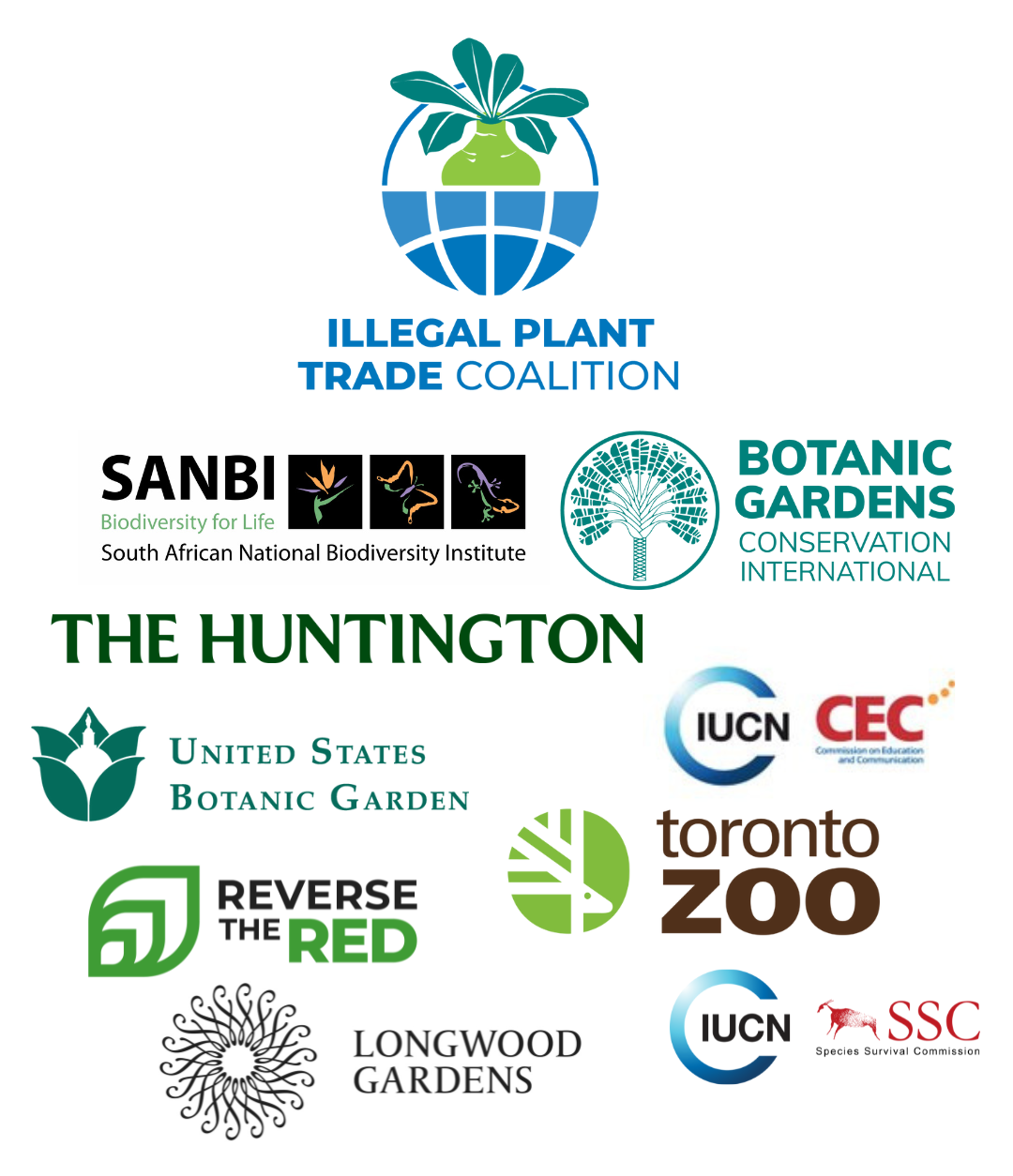
The Steering Committee of the Illegal Plant Trade Coalition
At the Illegal Plant Trade Coalition (IPTC) we work together for combined action to address, understand and mitigate the illegal plant trade.
What is the Problem?
The illegal plant trade is a global problem that is contributing to species extinction, ecosystem disruption, loss of local economic revenue, loss of cultural and traditional knowledge, introduction of invasive plants and pathogens, biosecurity risks, health and safety concerns and climate instability. However, many people remain largely unaware of this illegal trade and acts of poaching.
More plants go extinct annually than animals. Currently, 571 plant species have gone extinct since 1800.
The focus of policy, governments, and conservation organisations, primarily on the illegal wildlife trade of iconic animals means that very few resources are available to raise awareness for plant consumers, sellers and horticulturalists for instance. The internet has accelerated trade in plants and enabled sellers and buyers to trade with relative ease and limited detection of illegal activities. This further facilitates the illegal trade and creates increased pressure on wild populations that are poached in an unsustainable manner threatening some species with extinction.
Plants at risk
More plant species are currently considered threatened by international trade than animal species. This includes very familiar species such as orchids, cycads, succulents, cacti and carnivorous plants.
CactiThere are an estimated 1,500 species of Cactaceae found in the New World across North, Central and South America. Species in Chilean deserts, as well as Mexico are particularly targeted for the illegal plant trade. All Cactaceae are listed on the Convention on Illegal Trade in Endangered Species of Wild Fauna and Flora (CITES), with the higher risk species being listed on Appendix I. Individuals most frequently found in trade are globular cacti to be kept as house plants |
|
|
|
SucculentsSucculent plants have a broad botanical definition, that includes numerous species from different plant families. Some common families are Euphorbiaceae, Aizoaceae and Crassulaceae. The term succulent is used to describe plants which have thickened, fleshy or engorged parts and retain a fluid for survival in arid areas they inhabit. Similar to cacti, the favoured succulents in trade are small. They often occur in small numbers, and are hard to find or monitor unless in flower. The plants are harvested for houseplants. The illegal trade of this group is currently focused in Southern Africa, e.g. Namibia. Photo: Conophytum flavum subsp. novicium. Credit SANBI |
CycadsAll species of Cycad are listed on the CITES appendices. There are 376 species of Cycad. Of those that are assessed on the IUCN Red List, 68% (IUCN 2024) are threatened with extinction, making them one of the most at risk plant groups. Cycads are found in cultivation across the globe. Ornamentally, they are found as house plants and in home gardens as well as botanic garden collections. Some species also have medical properties, but it is the ornamental trade of live specimens of particularly uncommon species that is a major threat to this ancient plant lineage. Photo – Kozi cycad (Encephalartos ferox) Credit John Eder |
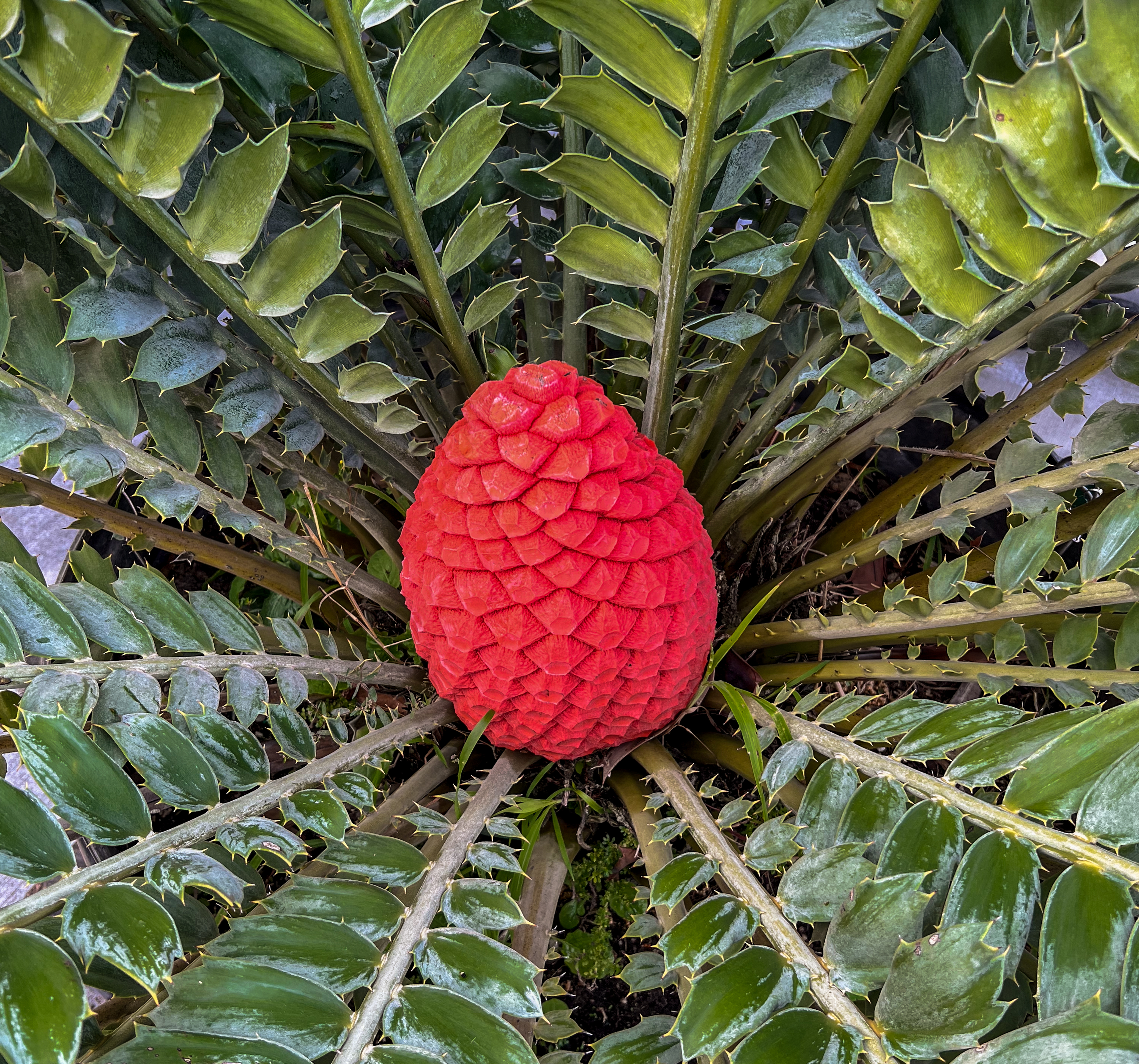 |
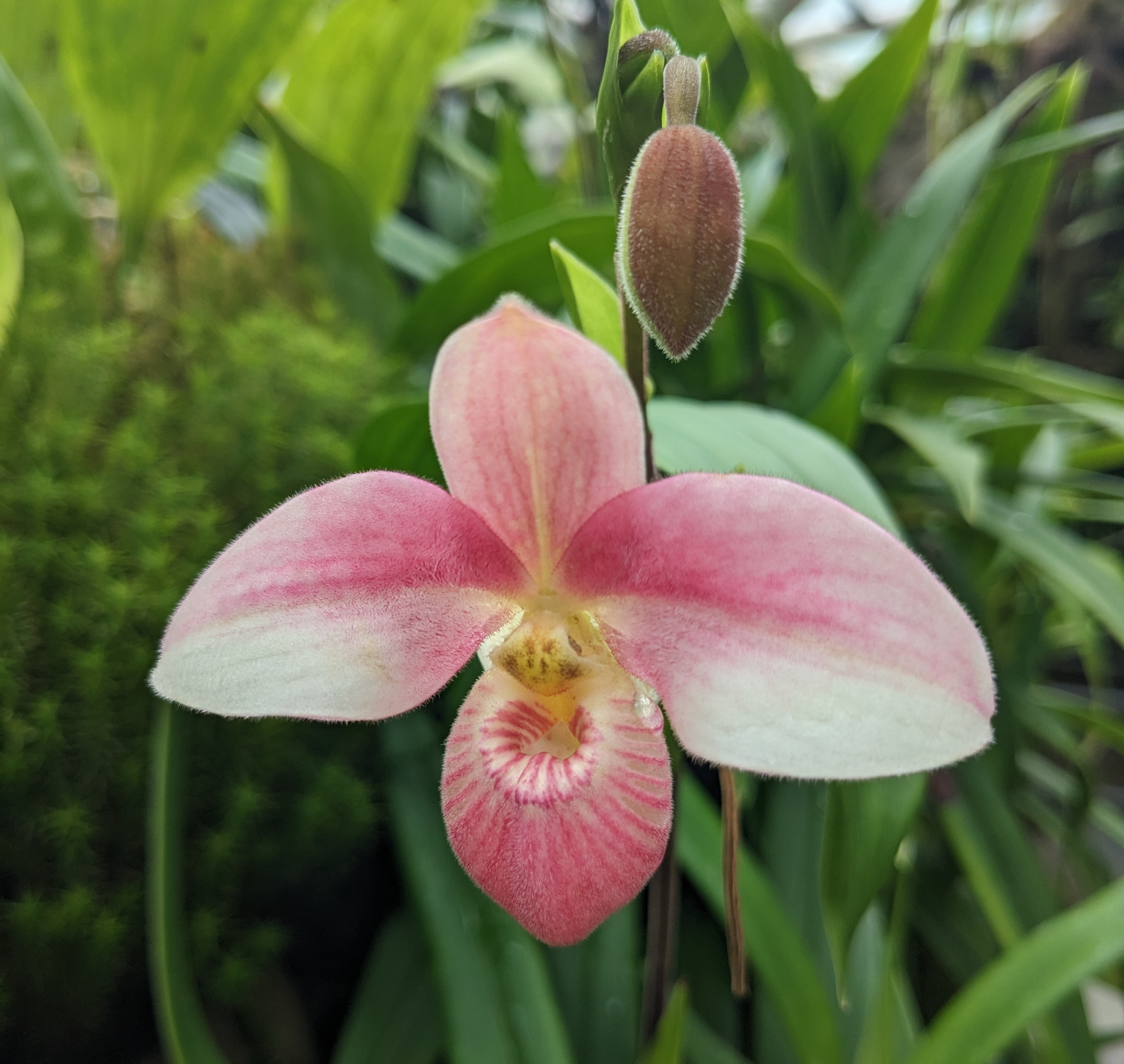 |
OrchidsOrchidaceae is the most diverse plant family but not all orchids are known to science yet. Current estimates suggest there are at least 30,000 species. Orchids are valued for ornamental display, presenting in different colours, shapes and sizes. Orchidaceae boasts some of the rarest plants, known from just a single locality or very few individuals. It is this rarity that puts them at significant risk from plant collectors and illegal plant trade. Due to this, all species of Orchidaceae are listed on CITES. |
Other Groups of ConcernIn different countries, groups outside of these iconic four plants may be at risk, for example across the US carnivorous plants are targeted for national and international trade this includes species of pitcher plant (Family Sarraceniaceae) and wild individuals of Venus fly traps – despite their wide cultivation for horticultural trade. In other places such as China, Magnolia species are at risk due to their ornamental and horticultural value as well as the non-forest products (such as health teas) that can be derived from them. Photo – Venus flytrap (Dionaea muscipula) Credit Stuart Borrett |
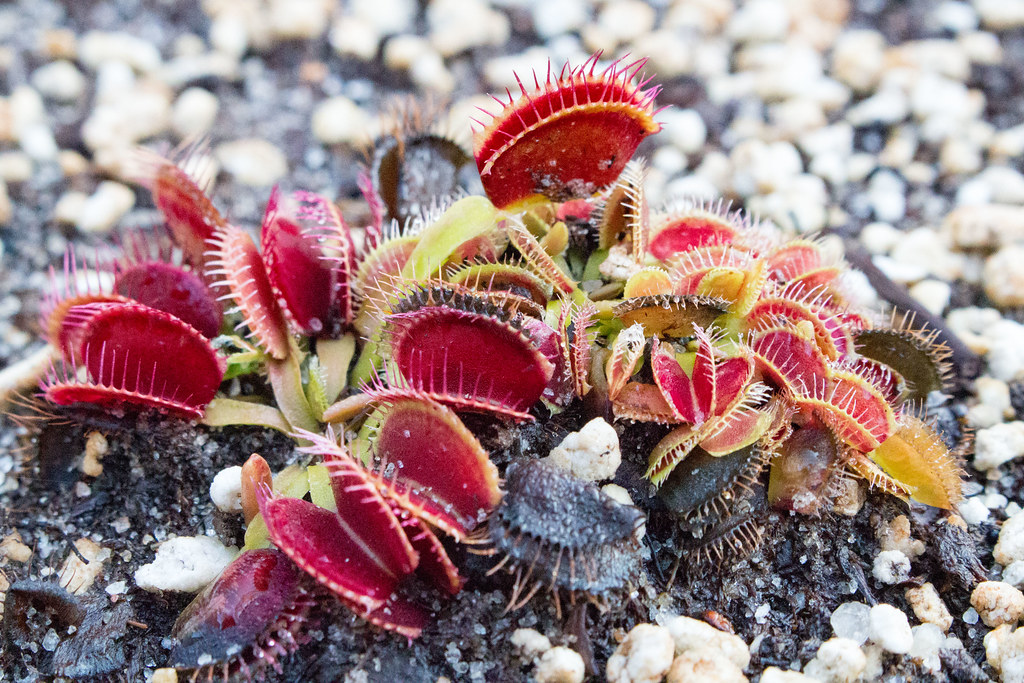 |
The role of botanic gardens
- Repositories for rare and threatened species, including those at risk from illegal plant trade.
- An engaged audience in botanic garden visitors, who care about conservation and the protection of plants in the wild. This often extends further than in-person visitors to social media and online followers.
- Knowledge and expertise across a range of specialisms essential to the Coalition, including hosting education and communication events, propagation of threatened species, and leading world class research on plants in the wild.
- Existing support of botanic gardens to enforcement agencies and horticultural industry.
The Coalition aims to build on existing activities within botanic gardens targeted at reducing the threat to plants from trafficking. It will also work to introduce more gardens to the issue and encourage them to deliver activities to increase knowledge and awareness. The Coalition will assist in increasing garden capacity to cater for the challenges they face in tackling this crisis.
There are a range of ways to get involved with us, and we welcome any contributions, sharing of information and inquiries from you, please do not hesitate to fill in the form below.

Keystone partners
Could your organisation be a keystone partner? This partnership tier is for BGCI members who wish to play an active and engaged role in designing and implementing the Coalition. Non-BGCI members can also be keystone partners if they represent an important constituency that can add to the concrete development of the Coalition.
Keystone partner will:
- Have involvement in design, implementation, and leadership of the Coalition, including the option to join the Coalition Steering Committee.
- Staff will be able to deliver expertise through subgroups and have a role in recruiting others to join the Coalition.
- Institutional logos will be included on all branded content, including on the Coalition website and other branded material.
- Have access to all Coalition materials and products, including the option to edit and adapt material.
- Be expected to reshare Coalition materials, report on activities and contribute to making new materials.
- A financial contribution (upwards of $5,000 USD) will be needed to be a keystone partner or contribution of significant time and unique expertise regarding illegal plant trade.
If you are interested, please email policy@bgci.org.

Action partners
All BGCI members are action partners for the Illegal Plant Trade Coalition. Action partners will get access to all coalition materials. Non-BGCI organisations can also join as action partners, in particular those who represent an important constituency for the Coalition.
Action partners will:
- Have access to all Coalition materials.
- Your institution will be a listed partner on our website.
- Be able to use the Coalition logo on your own products.
- Be offered support from keystone partners to deliver Coalition materials, such as early attendance to online training and webinar sessions.
- Be expected to reshare Coalition materials, report on activities and contribute to making new materials.
- A small financial contribution for non-members (less than $5,000 USD) or commitment of time will be needed.

Outreach partners
If you are an organisation or individual interested in the work of the Coalition and raising awareness of the illegal plant trade you can join the Illegal Plant Trade Coalition as an Outreach Partner. This is an option for non-BGCI members.
Outreach partners will:
- Have access to public facing Coalition materials.
- Be invited to attend online trainings and webinars.
- Be expected to make a Coalition pledge and share brief updates on activities and use of Coalition materials annually.

Not ready to become a partner?
Take an action pledge – Are you, your garden, or institution keen to take action towards the tackling the illegal plant trade? Make an action pledge for what you want to deliver from our global campaign.
Please share your email address if you are interested in making an action pledge (but not a partner) and we will share more information soon.
Illegal Plant Trade - Campaign Partners
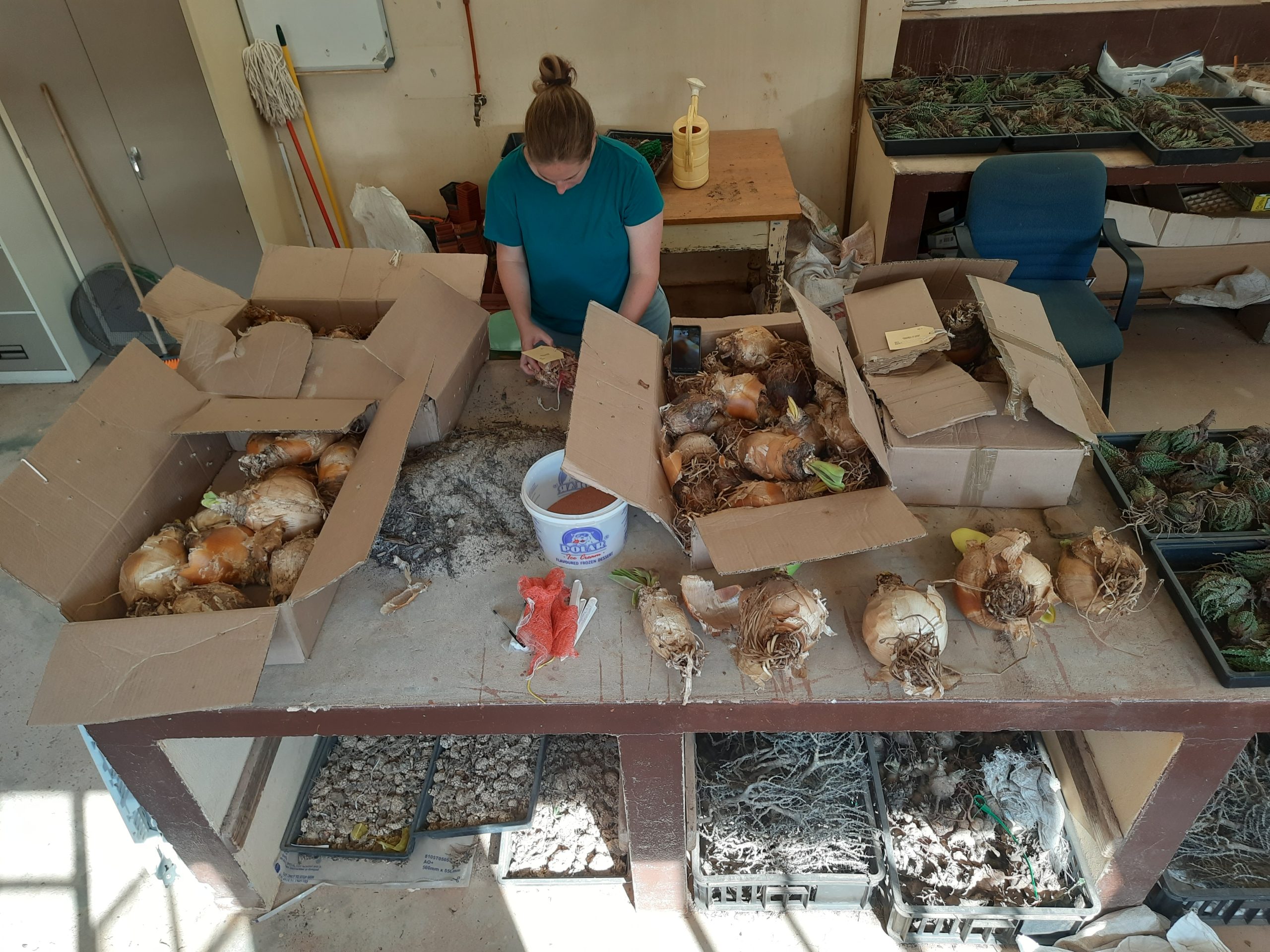
Confiscated Collections in South Africa. Photo Credit: SANBI
Projects
The IPTC will be launched at the upcoming IUCN World Conservation Congress in Abu Dhabi 2025.
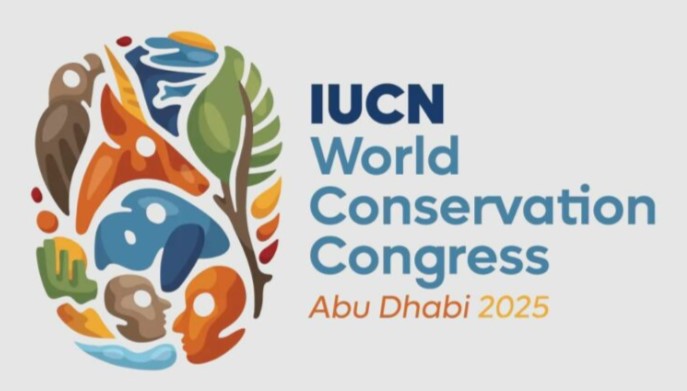
We’re currently developing a portfolio of innovative garden and community initiatives aimed at tackling the Illegal Plant Trade (IPT), promoting conservation horticulture, sustainable and legitimate plant sales and supporting livelihoods in biodiversity hotspots. Watch this space as our collaborations grow.
Our projects are currently pending funding confirmation. This section will be updated accordingly.
Products
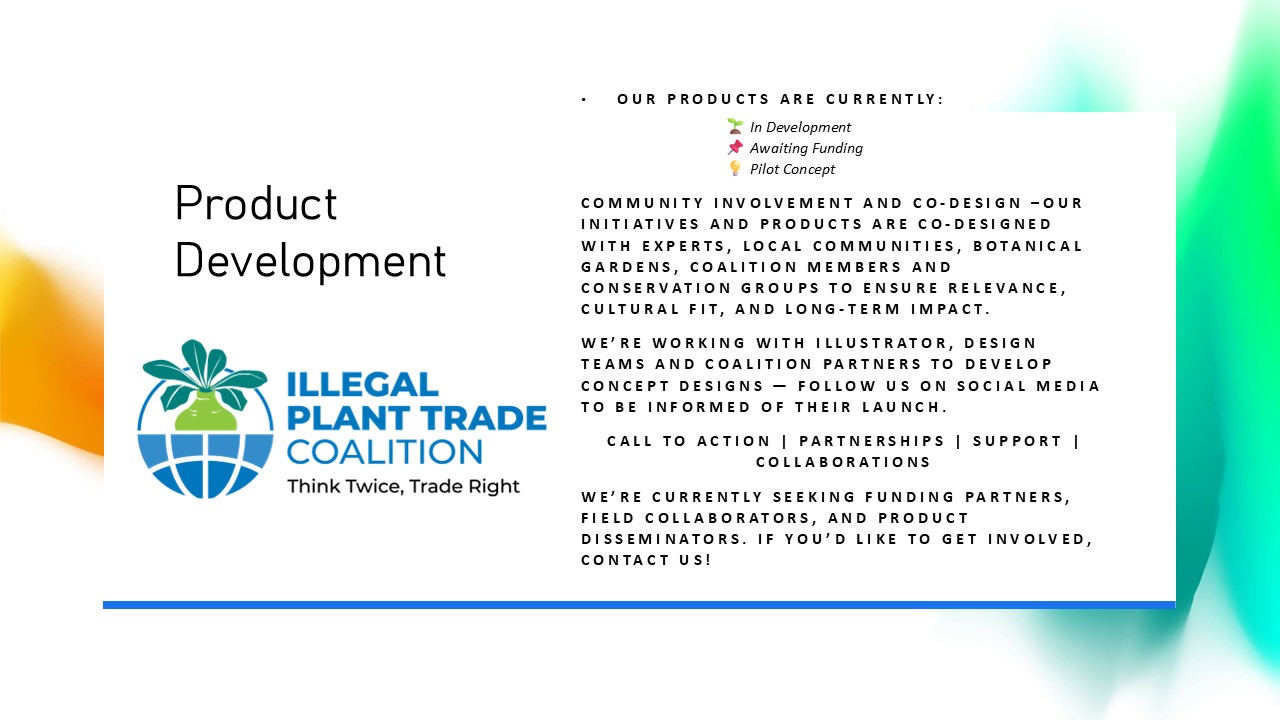
To implement our behaviour, change elements, we are in the process of producing the following products targeted at multiple sectors to raise awareness of the illegal plant trade and provide knowledge and expertise, and change purchasing habits.
- A suite of communications materials (social media cards, posters, for example), that can be adapted to local contexts, different languages and cultural contexts.
- Purchase guidelines and resources to promote ethical and sustainable buying for plant purchasers.
- Working with communities to gain an understanding of the processes and impacts of the illegal plant trade.
- Working with communities impacted by the illegal plant trade to share knowledge on propagation and sustainable plant management techniques.
- Guidelines to support enforcement officials and provision of plant identification skills.
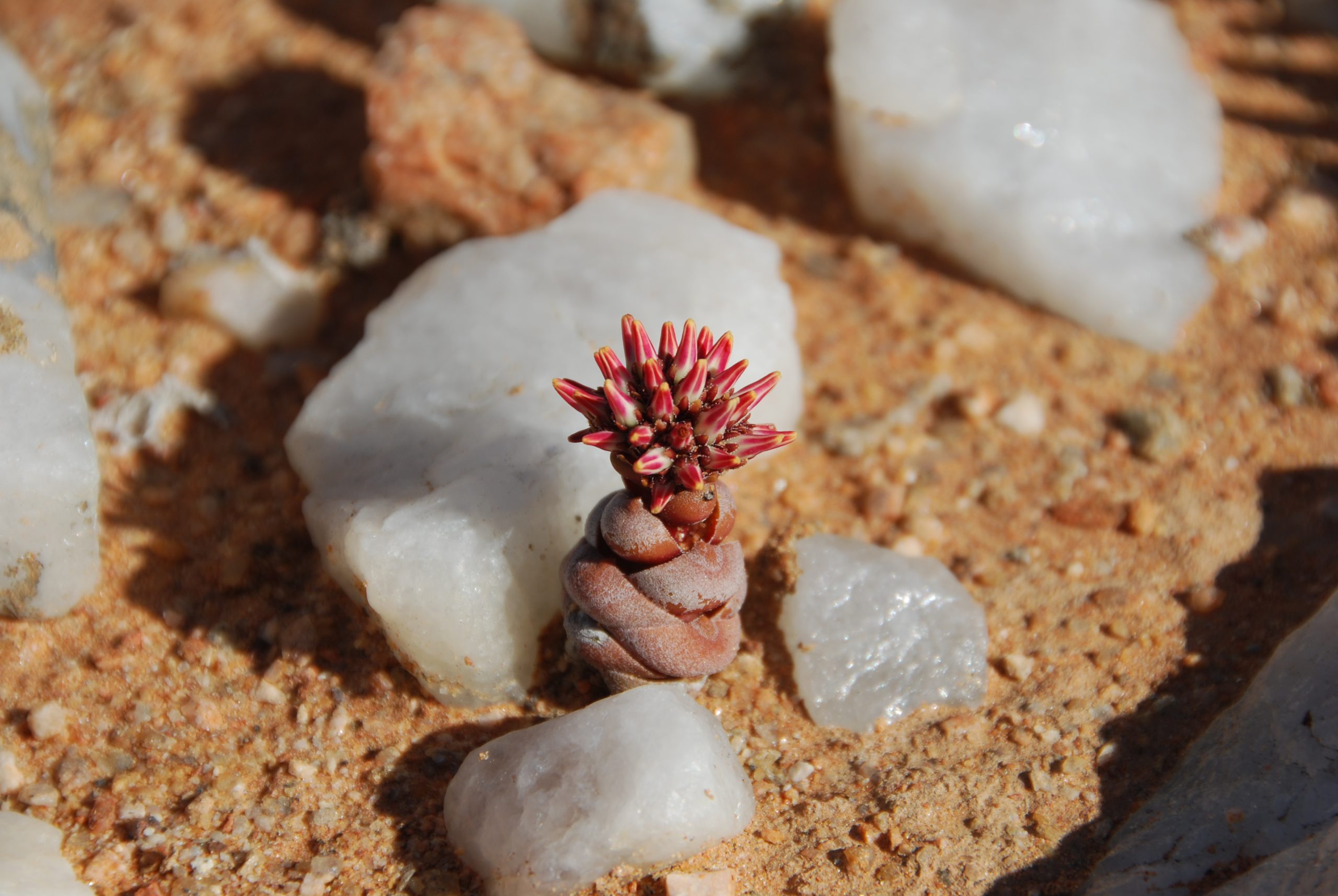
Partner Resource Areas
If you have signed up as an Action or Outreach Partner please use the links below to navigate to your resource areas. Keystone Partners will be invited to join a separate resource area.
If you would like to access resources but are not yet a Partner, please use the form on the ‘get involved’ section to sign up!
Newsletters
The Illegal Plant Trade Coalition will publish a regular newsletter, sharing updates from our partnership and information on new resources available from the Coalition. Please find previous editions below.
IPTC Newsletter #1: October 2025
IPTC Newsletter #2: December 2025
2024 Technical Review
We invite you to read the BGCI Technical Review on the illegal plant trade and botanical garden actions to mitigate this trade.
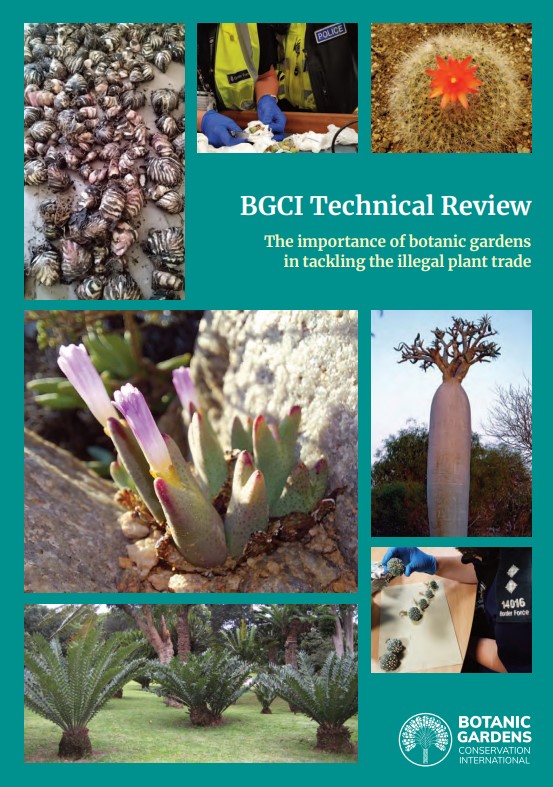
Webinars
We invite you to watch the first webinars discussing BGCI’s exciting new campaign tackling the illegal trade of plants. One major output of this campaign in 2024, has been BGCI’s latest technical review ‘The importance of Botanic Gardens in Tackling the Illegal Plant Trade’. These webinars presented on the major findings of the report and also highlight some of the 16 case studies from BGCI’s botanic garden network that are included in the report. More information on the campaign goals, strategy and methods of joining were also be presented.
Other Relevant Tools, Databases and Programmes
- PlantSearch: A global database on plant taxa hosted in botanical gardens and other similar organisations.
- ThreatSearch: A global database of conservation assessments, including IUCN Red List data, national red lists, and CITES species with a focus on plants at risk of extinction. A comprehensive database on threats to flora including conservation assessments.
- IUCN Red List of Threatened Species: A comprehensive global database assessing the conservation status of plant and animal species, categorises into risk levels (e.g., Critically Endangered, Endangered, Vulnerable). Includes assessments for thousands of plant species, including those threatened by poaching and habitat destruction.
- CITES (Convention on International Trade in Endangered Species of Wild Fauna and Flora): Regulates international trade in endangered plant and animal species and lists species that require permits for trade and those that are banned from international commerce.
- Plants of the World Online (POWO) – Kew Gardens: A global database of plant species providing taxonomy, distribution, and conservation information.
- With the illegal trade in plants comes great risk for biosecurity, find out more through the International Plant Sentinel Network.
- Through BGCI we have access to our Global Conservation Consortia who provide the Coalition species specific information.
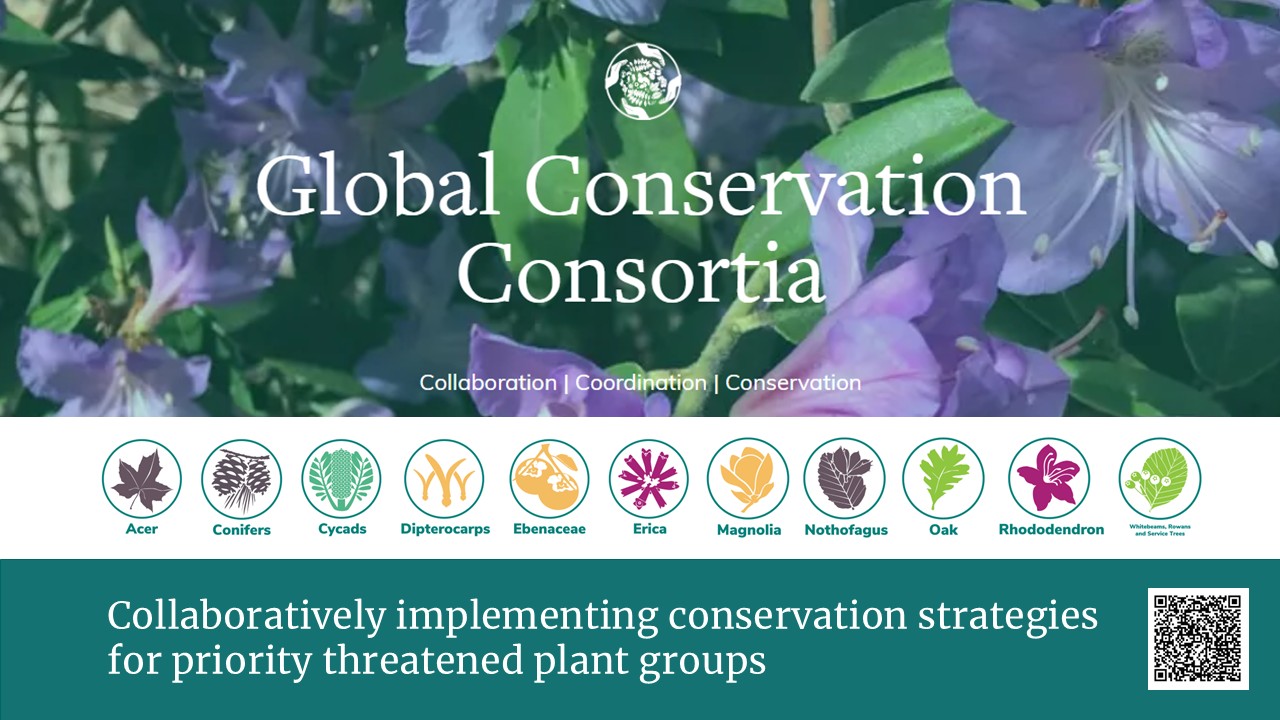
Share
